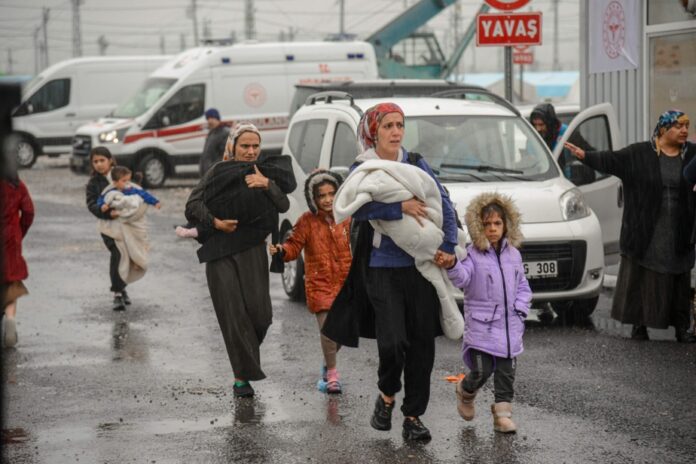(Toronto) The federal government will allow Turkish and Syrian temporary residents to extend their stay in Canada after last month’s deadly earthquake, while prioritizing their visa applications, Immigration Minister Sean Fraser said Saturday. .
More than 50,000 people were killed and millions more lost their homes after the 7.8 magnitude earthquake followed by numerous and powerful aftershocks hit Turkey and Syria on February 6.
Mr. Fraser announced, announced that from March 29, Turkish and Syrian nationals will be able to continue to study, work or visit family by applying for an extension of their status free of charge.
He added that the ministry would prioritize new and existing temporary residence applications and permanent residence applications from affected regions.
“For those applying for a temporary resident visa, we will be able to process their applications on a priority basis,” he said. Special measures will be put in place, within our system, to provide guidance to our agents to facilitate the approval of their files so that they can come to Canada.”
Since some applicants for permanent residence have lost their travel documents due to the earthquakes, Ottawa will also waive the requirement to hold a passport or travel document to be approved for a permanent resident visa to Canada.
“We are also allowing Canadian citizens and permanent residents of Turkey and Syria to return to Canada by waiving the fees for temporary passports, limited validity passports or emergency travel documents, as well as those Canadian citizenship certificates and permanent resident travel documents,” read a statement released on Saturday.
The minister said the government had learned from its efforts in welcoming people fleeing Ukraine after the Russian invasion last year. The government had offered temporary protection to large numbers of Ukrainian nationals much more quickly through regular refugee resettlement programs, he said.
“We’re using a new strategy to help facilitate the arrival of people in this situation who might not normally be allowed to come to Canada,” Fraser said. The specific mechanism we use involves the use of advanced analytics within the IRCC system to identify people who have been affected by the earthquake and to make a positive eligibility decision for a whole pool of applicants at once. “.
These measures will be in effect until September 25.
According to the government, as of March 10, about 600 Syrians and 6,400 Turks had temporary residence status. This expires within six months.
Last month, Canada announced $20 million in additional aid to support a range of essential humanitarian activities. It will also match $10 million in donations to the Humanitarian Coalition and its members.


















